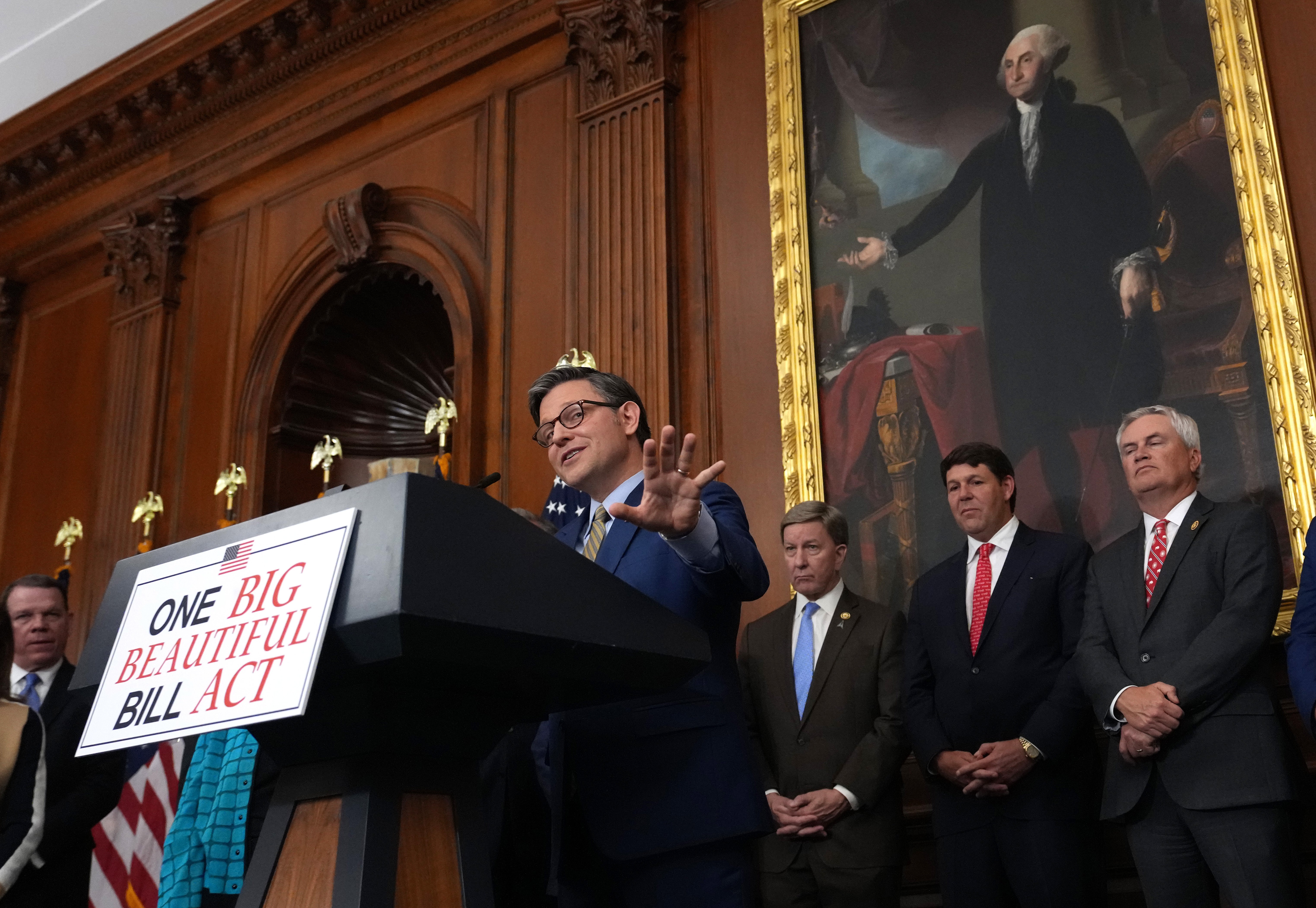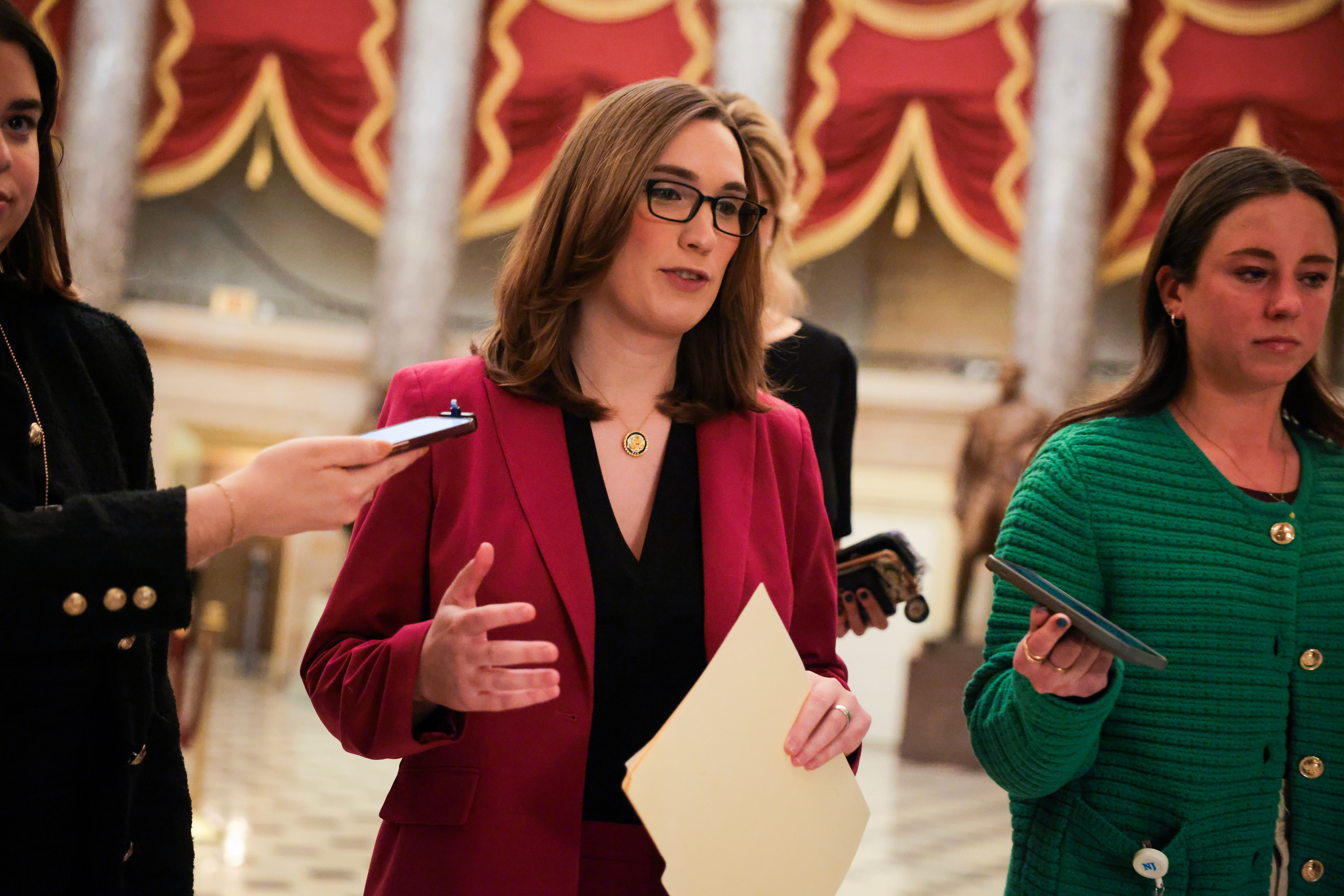President Donald Trump’s “One big, beautiful bill,” the legislation passed the House of Representatives early Thursday morning, would ban gender-affirming care for transgender people on Medicaid and the health care exchanges under the Affordable Care Act.
In the initial piece of legislation, gender-affirming care was banned for people younger than 18.
But House Republican leadership released its manager’s amendment, an amendment that described the agreements used to appease conservatives and swing-district Republicans alike, late in the evening. That amendment struck the phrase “for minors.”
In addition, the legislation would also prohibit “gender transition procedures” as an “essential health benefit” under the 2010 health care law signed by President Barack Obama, formally called the Affordable Care Act or colloquially known as Obamacare.

The legislation that passed the House on Thursday would significantly increase spending for immigration enforcement along the US-Mexico border, energy drilling and the US military. It would also extend most of the 2017 tax cuts that Trump signed during his first tenure as president.
“It’s one more example of health care that they’re trying to rip away,” Rep. Sarah McBride, a Democrat from Delaware, told The Independent. McBride is the first openly transgender member of Congress whom Republicans have attempted to force to use a men’s bathroom.
Other Democrats were more vocal.
“The entire thing’s a s*** show,” Rep. Mark Pocan of Wisconsin told The Independent. “There’s so much that’s problematic, but I’m counting on the adults in the Senate to fix what the House Republicans have screwed up.”
According to the Williams Institute at UCLA School of Law, 276,000 transgender adults are enrolled in Medicaid, the health insurance program for poor people, children, pregnant women and people with disabilities. The 2022 study also found that 38,000 transgender recipients of Medicaid live in states with express bans on gender-affirming care.

Trump’s 2024 presidential campaign said not only did Kamala Harris support transgender athletes playing in women’s sports, but also claimed she “supports taxpayer-funded sex changes for prisoners.”
“It’s more than bullying, it’s persecution,” Rep. Maxwell Frost of Florida told The Independent. “It’s horrible, and obviously the fight doesn’t end here.”
Despite the legislation’s passage, the bill has a long way to go before becoming law. Senate Republicans, who have only 53 seats, plan to pass the legislation under a procedure known as budget reconciliation.
Reconciliation allows them to pass legislation on a simple majority vote and sidestep a filibuster as long as the legislation relates to the budget.
Rep. Mark Takano, the chairman of the House Equality Caucus, told The Independent that he wondered if the Senate Parliamentarian would determine that the change in spending from dropping gender-affirming coverage would be “merely incidental,” which means it would not pass parliamentary muster to be included in reconciliation.
The legislation passed 215 to 214, with two Republicans–Warren Davidson of Ohio and Thomas Massie of Kentucky–voting “no” and Rep. Andy Harris of the hard-right House Freedom Caucus voting “present.”
This is not the first time that Republicans included a rider on gender-affirming care in legislation.
Last year, Republicans included an amendment to prohibit TRICARE, the health care program for active duty US service members, from covering “certain medical procedures for children that could result in sterilization” in the National Defense Authorization Act, a must-pass piece of legislation that authorizes spending for the Pentagon.
In recent years, public opinion has shown a desire for restrictions on transgender people. A Pew Research Center survey from February found that 66 percent of US adults support transgender athletes playing on teams that match their birth gender while 56 percent support banning gender-affirming care for people younger than 18.


